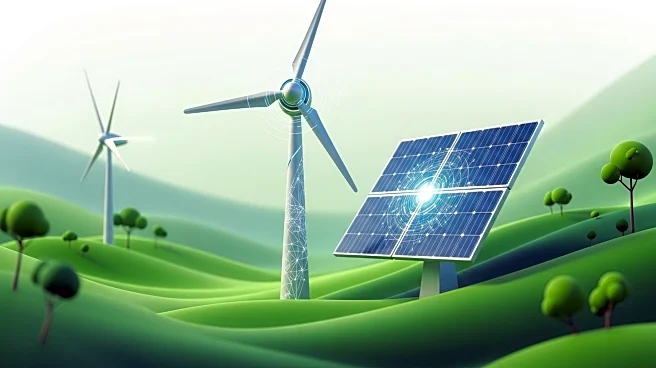What's Happening?
The European Commission (EC) has introduced a new state aid framework, known as CISAF, as part of its Clean Industrial Deal. This initiative aims to support strategic industries that align with the EC's goals of renewable energy, decarbonization, and cleantech manufacturing. The framework provides EU countries with tools to offer financial support to businesses advancing these priorities, facilitating quicker approval of state aid schemes. The EC's agenda includes promoting renewable energy, low-carbon fuels, industrial decarbonization, and clean tech development, with a focus on batteries, automation, and semiconductors. The Clean Industrial Deal also encourages member states to introduce tax incentives to support clean industrial projects.
Why It's Important?
The EC's new framework is crucial for accelerating Europe's green transition and strengthening industrial resilience. By simplifying the approval process for state aid schemes, the EC aims to attract public and private investments in clean industries, thereby enhancing Europe's energy security. This move is significant as it positions the EU as a leader in the global energy transition, especially in the face of increasing competition from China and the US. The framework also supports the development of strategic cross-border projects, fostering collaboration among EU member states and industries to achieve common green objectives.
What's Next?
Companies are encouraged to explore investment opportunities in sectors aligned with the EC's goals and assess their eligibility under the new state aid schemes. The EC plans to further simplify and update the state aid General Block Exemption Regulation to reduce bureaucratic hurdles and facilitate necessary support for the industry. Additionally, the EC is working on expanding the scope of Projects of Common European Interest (IPCEIs) to support industrial decarbonization and cleantech manufacturing, aiming to pool investments and resources for key projects.
Beyond the Headlines
The EC's initiative reflects a broader shift towards integrating climate action with industrial competitiveness. This approach not only addresses environmental concerns but also aims to boost economic growth by supporting industries that are pivotal to the energy transition. The emphasis on tax incentives and regulatory frameworks highlights the EC's commitment to creating a favorable environment for clean industrial development, potentially leading to long-term shifts in industrial policy across Europe.









